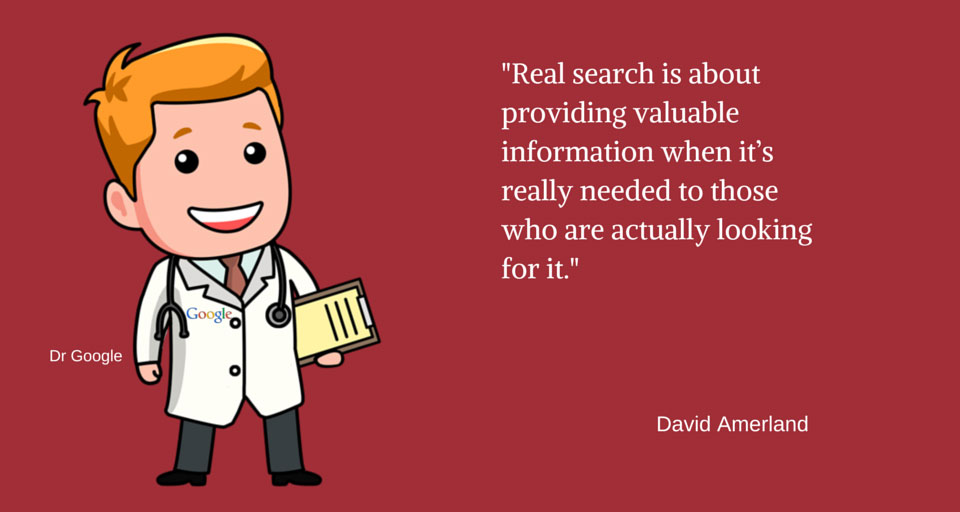“Real search is about providing valuable information when it’s really needed to those who are actually looking for it.” – David Amerland
Last week Google started giving health related answers in the #KnowledgeGraph answer boxes. So from now on Google will start giving relevant medical facts right up front from the Google Knowledge Graph.But those facts are not coming from Wikipedia or other websites (official announcement here: goo.gl/jl1XC5).
Is there a reason behind this bold move by Google?
Well on average one out of 20 Google searches are seeking health-related information. The search giant now wants to show answers that were created especially for Google and not collected from the web. Here is how Google describes the creation of this content:
“We worked with a team of medical doctors (led by our own Dr. Kapil Parakh, M.D., MPH, Ph.D.) to carefully compile, curate, and review this information. All of the gathered facts represent real-life clinical knowledge from these doctors and high-quality medical sources across the web, and the information has been checked by medical doctors at Google and the Mayo Clinic for accuracy.”
Is this shift from information presenter to information creator the future of the search giant?
Well only the future will tell. For now all we have to do is structure and mark up our data to make it more appetizing as a data source for the Knowledge Graph (http://goo.gl/Pj4G47 by Aaron Bradley).

On the other side from a consumers point of view: Should you ever have more confidence in ‘Dr Google’ than your GP?
My opinion: I believe the thing with GPs is, obviously, being general practitioners their in depth knowledge of serious conditions is limited. Unfortunately with the state of the NHS in England you’re looking at a 3 week wait to see the GP and a 3 month wait to see a specialist. Being able to seek advice from Google may give you an advantage and leap past a few rounds of ‘let’s try this treatment’. Many doctors (and I have seeing it with my own eyes) use Google too.
In all cases it should be not very wise to ignore Google’s own advice:
“That doesn’t mean these search results are intended as medical advice. We know that cases can vary in severity from person to person, and that there are bound to be exceptions. What we present is intended for informational purposes only—and you should always consult a healthcare professional if you have a medical concern. “

Leave a Reply